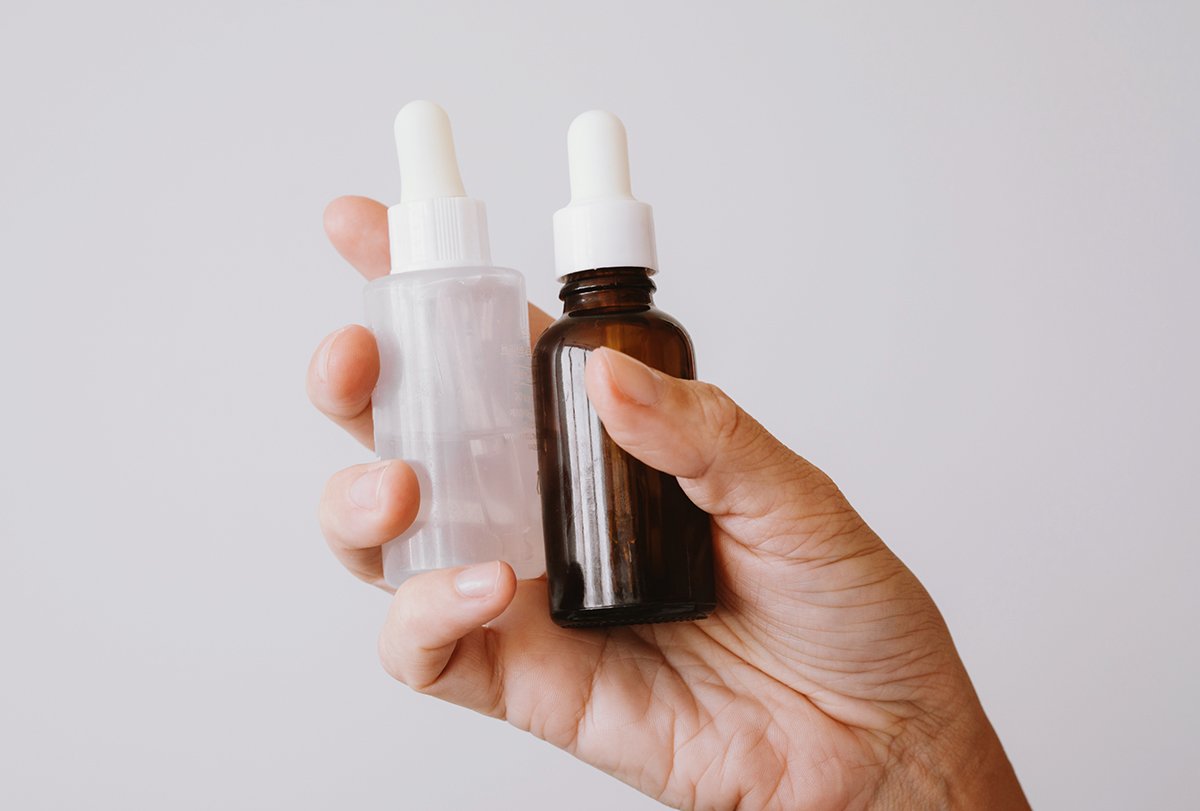
[adinserter block=”1″]
Oily skin is often thought to be hard to manage in terms of what skincare product one should or shouldn’t use.
Many people think serums are not good products for oily skin. You may be surprised to know that oily skin can benefit greatly from the right serum.
Despite common misconceptions, oily skin needs hydration too, and the proper serum can be a game changer.
Sebum production, which is responsible for oily skin, isn’t constant and varies due to factors such asage.
Serums that have a light consistency penetrate the skin without clogging the pores or making the skin greasy. They provide essential hydration without triggering excessive oil production, making them the perfect choice for oily skin. (1)(2)
Gel-based serums are particularly effective for oily skin. Additionally, serums packed with a powerful punch of concentrated active ingredients can be potent allies against specific oily skin concerns.
Your aim should be to look for serums with ingredients that regulate oil production and refine pores, ensuring a healthy balance for your oily skin. (1)(2)
This article will help you choose the best serum for your oily skin. Continue reading to master the art of serums in skin care.
How Do You Know if a Serum Is Good for Oily Skin?
Choosing a serum for oily skin involves looking for key qualities. Experts and dermatologists suggest keeping the following points in mind:
- Choose a serum labeled “oil-free” or “noncomedogenic,” which means it won’t clog pores.
- Ingredients such as hyaluronic acid and salicylic acid work wonders, as they hydrate without adding extra oil and help control excessive sebum production.
- A lightweight, water-based formula is your friend, ensuring quick absorption without leaving a greasy residue.
- Look for terms such as “mattifying” and” oil control” on the product, which indicate its suitability for oily skin.
- Avoid serums that contain heavy oils such as coconut oil and avocado oil.
- Always check for nonirritating, gentle ingredients to keep your skin balanced and healthy.
What to Look Fin a Serum for Oily Skin?
Here are some serums that are considered suitable for oily skin and its related issues.

Green tea serums
Polyphenols, which are powerful antioxidants found in foods such as nuts, fruits, and tea, have impressive skin care properties, including fighting microbes, reducing inflammation, and even combating certain cancers.
Recent research has shown that tea polyphenols have a lot of potential in tackling oily skin and acne. A review of eight studies, mainly using green tea, suggests that applying tea polyphenols topically may indeed reduce sebum production and aid in acne treatment. (3)
One study found a 3% green tea emulsion significantly decreased oil production over 8 weeks. (4)
Another study that included 22 participants showed reduced sebum secretion after 60 days of topical green tea emulsion application.
These findings highlight the promising role of green tea serums in skin care for people with oily skin. (4)(5)
Retinol serums
Retinoids, derived from vitamin A, are great agents for your skin care regimen. They team up with skin receptors, triggering repair, growth, and inflammation reduction.
When it comes to oily skin, retinoids are excellent at managing it too.
They connect with sebocyte receptors, the oil-producing cells, and curb excess oil production. This not only reduces inflammation in the sebaceous glands but also accelerates the elimination of lingering sebum in the ducts, promoting clear skin. (1)(6)
Retinyl esters, such as retinyl acetate and palmitate, bring additional benefits, converting into retinoic acid to regulate sebum and offering antioxidant and wrinkle-fighting powers.
So, if you’re dealing with oily skin, consider retinoids as your skincare sidekick, helping you achieve a balanced complexion. (1)(6)
Niacinamide serums
Niacinamide, a form of vitamin B3, works wonders for oily skin. It acts as an anti-inflammatory agent, calming various pathways that lead to skin irritation.
Also, niacinamide’s sebo suppressive effect is noteworthy. It encourages the exfoliation of the tube connecting the sebaceous glands, leading to faster sebum reflux to the skin surface.
This reduces the sebum reservoir, thereby decreasing overall sebum excretion. (7)(8)
In clinical trials, the use of 2% niacinamide products resulted in a significant decrease in sebum after just a few weeks, making them excellent additions to the skin care routine for oily skin. (7)
Salicylic acid serums
Salicylic acid is a good choice for people with oily skin battling acne.
When excessive oil and dead skin cells team up to clog your pores, acne problems emerge. Here’s where salicylic acid steps in. It skillfully breaks down the bonds between dead skin cells, allowing them to make a smooth exit from your pores.
Also, salicylic acid is an expert at dealing with sebum (the oil your skin produces). By breaking down sebum, it ensures the pores stay clear and free from congestion. (8)
In simpler terms, salicylic acid not only unclogs pores but also helps prevent acne breakouts on your face. So, if you’re dealing with oily skin and acne, consider buying salicylic acid.
How often should you use a serum for oily skin?
Use the serum as directed on the product, typically once or twice a day.
Final Word
Oily skin benefits from lightweight, water-based serums such as gel-based ones that contain ingredients such as hyaluronic acid and salicylic acid.
Choose serums labeled “oil-free” or “noncomedogenic.” Serums such as green tea serums, retinol serums, niacinamide serums, and salicylic acid serums effectively address oily skin concerns.
[adinserter block=”1″]
Credit : Source Post









